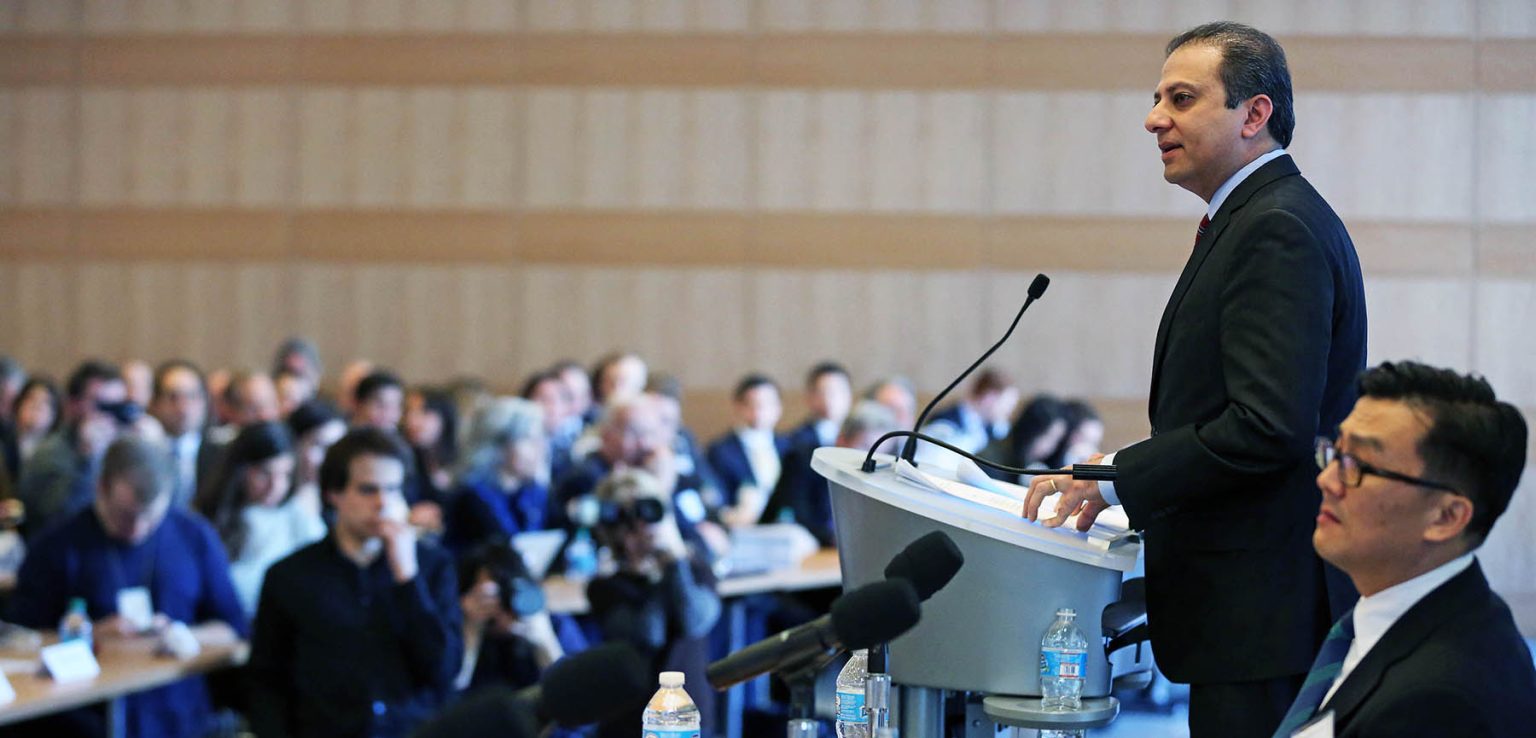Without naming names, Preet Bharara, the U.S. attorney for the Southern District of New York, discussed pervasive corruption in Albany on March 6 at the Fordham Law Review’s spring symposium.
The event, “Fighting Corruption in America and Abroad,” came on the heels of some criticism that Bharara has received for making public statements on corruption while prosecuting former Assembly Speaker Sheldon Silver.
But the U.S. attorney said that it’s entirely appropriate for his office to participate in forums where students, scholars, and practitioners meet and share common insight to deter crimes.
“Our cases have more resonance than people in this room can realize,” he said, citing letters of support from New Yorkers who were “turned off by government because the status quo won’t change.”
“They tuned out, but when you clean out [the problem]they tune back in—and that’s no small thing when you care about democracy,” he said.
Bharara said that the topic relates to patterns seen in other pervasive crimes that his office handles, such as gang violence.
“If you are a narcotics prosecutor and you take a gang off the street, that’s a job well done. But what impact does that have if the next day another gang moves in? Then we haven’t quite done the job. That’s true for public corruption as well.”
Everyone bears responsibility for routing out criminal behavior, he said, not just prosecutors. He warned of a permissive atmosphere propagated by people standing by and not blowing the whistle.
“Good people who do nothing bear responsibility for the bad things that go wrong in their institution,” he said.“There is nothing better than self-policing. The body politic has to take care of itself first.”
Without directly offering a solution to Albany’s ills, Bharara did offer a manner in which to view the problem. He paraphrased his former professor, the moral political philosopher John Rawls, who posited that a “veil of ignorance” sets up an impartial viewpoint from which to understand a problem—in this case government reform. From that vantage point, the facts of a person’s place, class, abilities, and weaknesses drop away, creating a neutral viewpoint by which people could begin to reassess the “rule of the road” in government and collectively choose new procedures and principles.
From behind such a veil, basic questions could be examined:
“What would you choose for your social contract? … Would you choose gerrymandered districts? … Would you want a level of self-policing on the part of elected officials? … Would you want an outside watchdog? … How would you ensure against conflicts of interest? … Would you want to know whether your elected officials were being paid by industries affected by their decisions? … Would you want shadowy committee procedures?”
Bharara said that while he doesn’t hold any views on these particular questions, they are the types of questions worth asking. Sometimes it’s better first to ask what is right and then try to see if it is possible.
Before New Yorkers mourn the futility of healing a “deeply diseased political body,” they should remember the Greek scientist Archimedes, Bharara said. The scientist claimed that if the circumstances were right he could lift the earth off its very foundation—“all you need is a long-enough lever and a place to stand.”
“To put it in blunter New York terms: If we can clean up Times Square, can we really not clean up Albany?” said Bharara. “Just give the people a long-enough lever and a place to stand.”
U.S. Attorney Preet Bharara at Fordham Law Review Symposium on Fighting Corruption from Fordham Law School on Vimeo.

